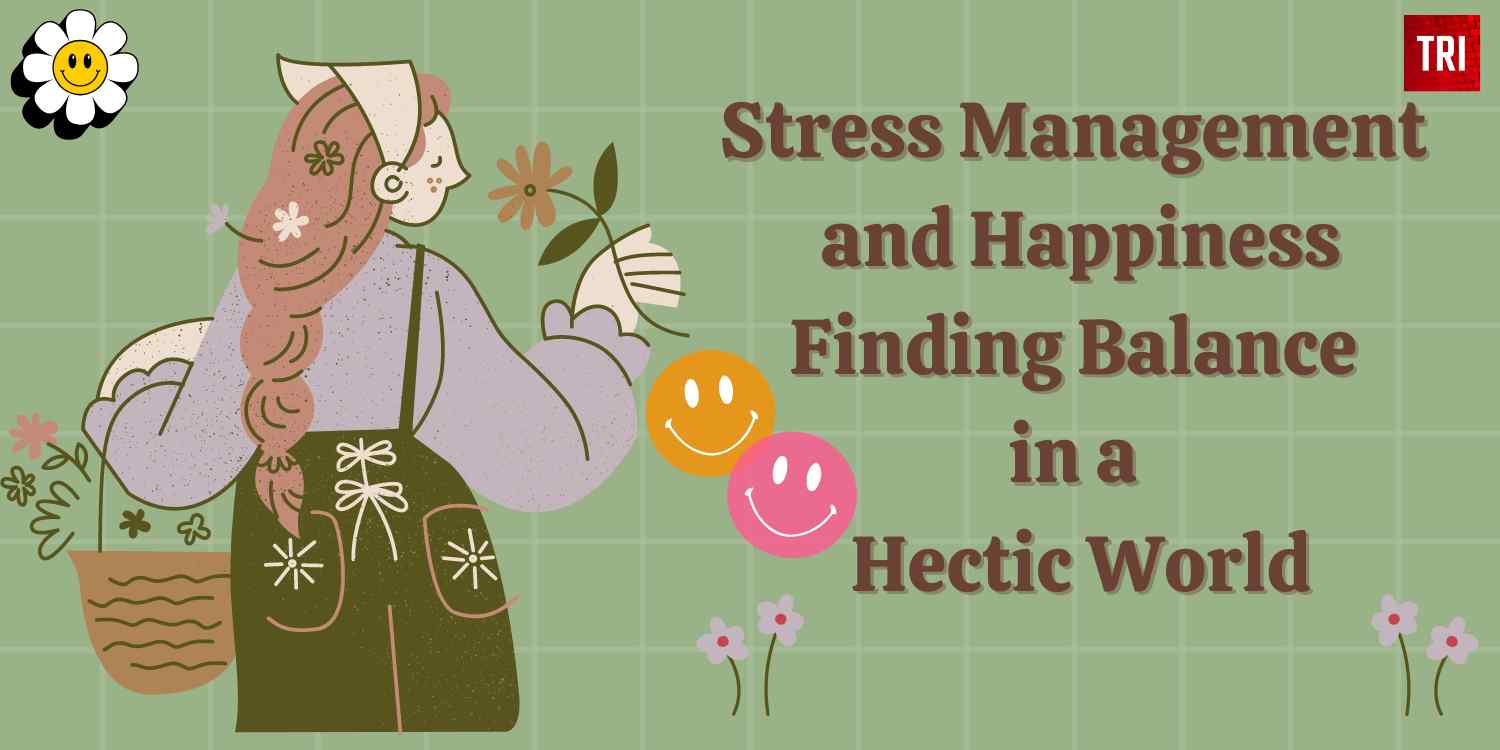Introduction
In today’s fast-paced world, stress has become an omnipresent companion for many individuals. Whether it’s due to work pressures, personal responsibilities, or external factors like global events, stress can take a toll on our physical and mental well-being. However, understanding stress management techniques and their profound impact on our happiness can be the key to leading a fulfilling life.
The Stress-Happiness Connection
Stress and happiness are intricately connected. While stress is a natural response to challenging situations, chronic stress can have detrimental effects on our health, relationships, and overall quality of life. On the other hand, happiness is not merely the absence of stress but a state of contentment and well-being. Learning to manage stress effectively is essential for achieving and maintaining happiness.
Mindfulness Meditation
One of the most powerful stress management techniques is mindfulness meditation. This ancient practice involves focusing on the present moment, observing thoughts and feelings without judgment, and cultivating a sense of inner calm. Research has shown that regular mindfulness meditation can reduce stress hormones and improve overall mental health. By being more present and less reactive to stressors, individuals can find greater happiness in their daily lives.
Exercise and Physical Activity
Physical activity is a natural stress reliever and mood booster. When you engage in regular exercise, your body releases endorphins, which are natural mood lifters. Exercise also helps reduce the physical symptoms of stress, such as muscle tension and fatigue. Whether it’s a brisk walk, a yoga session, or a vigorous workout, incorporating physical activity into your routine can significantly contribute to your happiness.
Time Management
Effective time management is crucial for reducing stress and enhancing happiness. Many people feel overwhelmed by their daily tasks and responsibilities, leading to chronic stress. Learning to prioritize tasks, set realistic goals, and delegate, when necessary, can help create a sense of control and accomplishment. As you achieve more in less time, you’ll have more opportunities to pursue activities that bring you joy.
Healthy Lifestyle Choices
Nutrition, sleep, and overall lifestyle choices play a significant role in stress management and happiness. A balanced diet rich in nutrients can help your body better cope with stress. Ensuring you get enough quality sleep is vital for emotional regulation and resilience. Additionally, reducing or eliminating harmful habits like excessive alcohol consumption and smoking can improve your overall well-being and happiness.
Social Support
Humans are inherently social creatures, and our connections with others have a profound impact on our happiness and stress levels. Maintaining healthy relationships and seeking support from friends and family can provide emotional relief during stressful times. Sharing your thoughts and feelings with loved ones not only eases the burden of stress but also strengthens your bonds and enhances happiness.
Setting Realistic Expectations
Setting overly high or unrealistic expectations for yourself can be a significant source of stress and unhappiness. It’s essential to acknowledge your limitations and understand that perfection is unattainable. By setting achievable goals and being kinder to yourself, you can reduce stress and find greater contentment in your accomplishments.
Pursuing Passions and Hobbies
Engaging in activities you’re passionate about can be a powerful stress management strategy. Hobbies and interests provide an opportunity for relaxation, creativity, and self-expression. When you immerse yourself in activities that bring you joy, you naturally reduce stress and increase happiness.
Conclusion
Stress is an inevitable part of life, but it doesn’t have to control our happiness. By implementing effective stress management techniques, we can navigate life’s challenges with resilience and find greater fulfilment. The stress-happiness connection is a delicate balance, and it requires conscious effort to maintain. Mindfulness meditation, physical activity, time management, healthy lifestyle choices, social support, setting realistic expectations, and pursuing passions are all valuable tools in our arsenal for achieving both stress management and happiness.
Incorporating these strategies into your daily life can lead to a profound transformation. As you learn to manage stress effectively, you’ll discover that happiness is not an elusive goal but a state of being that can be cultivated and sustained. Ultimately, the journey to happiness begins with taking proactive steps to manage stress, ensuring a brighter and more fulfilling future for yourself and those around you.












